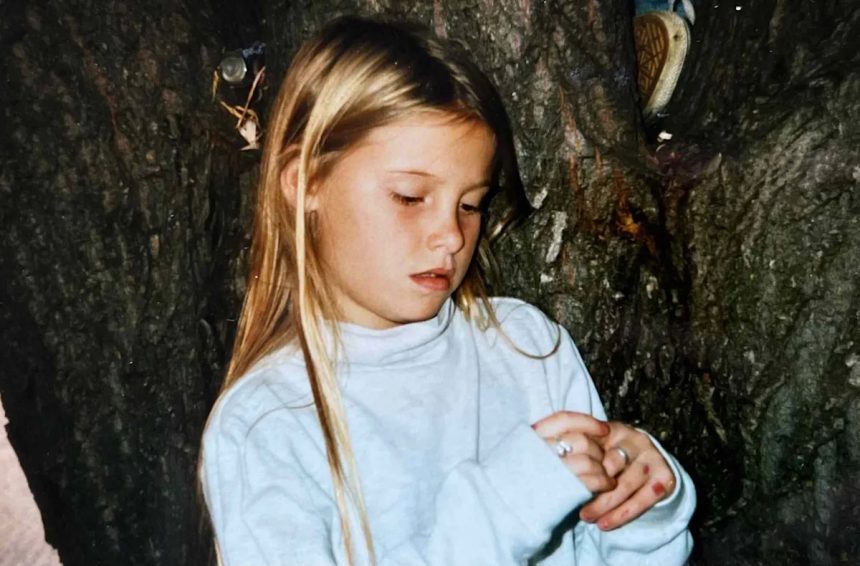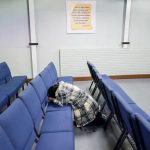NEED TO KNOW
-
Erin Merryn, who survived sexual abuse as a child, is lobbying every state in the U.S. to pass curriculum that teaches “personal body safety”
-
Now 40 and a mom of four, she says, “My goal is to give kids a voice and lock predators up”
-
With Erin’s Law being passed in much of the country, Merryn says, “I realized I could do something positive”
If Erin Merryn could talk to the little girl she was at 6 years old growing up in Schaumburg, Ill., the one who was sexually abused by a neighbor and then later by a relative, Merryn would tell that child that “it’s not going to destroy the rest of your life — and all the good you’ll be able to do.”
“I wish,” she says, “I’d be able to tell her that she is going to make a difference.”
Merryn, 40, has spent most of the last two decades speaking out about her experience and working to protect future generations of children, believing that kids need to be taught in schools about “personal body safety,” appropriate touch and appropriate adults to trust.
“My goal is to give kids a voice and lock predators up,” she says.
That idea is enshrined in Erin’s Law, which has passed in 38 states.
“We teach and mandate tornado drills, fire drills, mass shooting drills,” Merryn says. “All things we need, but kids are far more likely to be sexually abused.”
Solutions can start with something simple: “I wished someone had come into the classroom and told me, ‘You will be believed,’ ” Merryn says. “Children who are being abused are told, ‘Keep it a secret. I’ll kill you.’ “
That’s what happened to her, she says: The neighbor who raped her had warned “he would burn my house down if I said anything.”
courtesy of Erin Merryn
From left: Erin Merryn meeting with Wisconsin Gov. Tony Evers
In 2004, Merryn published a memoir, Stolen Innocence, based on her childhood diary. Erin’s Law took shape from there. She’s since traveled state by state to press for its passage, quitting her job as a youth counselor in 2010 to work on her advocacy full time. (She shares four kids, ages 3 to 11, with husband David Merryn, who works at a gas company.)
“Something these legislators learn about me is I don’t go away,” says Merryn, who recently drove from her home in the Chicago suburbs to Madison, Wisc., to meet with Gov. Tony Evers.
“We make it very simple to teach,” she says of the abuse-prevention curriculum for students of all ages as well as school employees and families. “It’s very age-appropriate and at no cost.”
“It’s basically requiring one hour out of a school year to teach kids personal body safety and identifying trusted adults to go to,” she says.
There have been challenges, Merryn says.
“Some legislators make the argument: ‘Erin, this is a conversation parents should be having, not in school,’ ” she says. “Parents talk about ‘stranger danger.’ But 90% of the time kids are being abused by someone they know and trust.”
“There’s [also] parents that get concerned and think this is sex ed,” she continues. “This isn’t sex ed. This is teaching about boundaries.”
The risks of doing nothing, she feels, are far greater.
Never miss a story — sign up for PEOPLE’s free daily newsletter to stay up-to-date on the best of what PEOPLE has to offer, from celebrity news to compelling human interest stories.

courtesy of Erin Merryn
Erin Merryn (right) with her family
“The other argument I get is schools don’t have time for this. But those kids that are being abused and keeping silent are taking up far more time in the classroom throwing tantrums like I did,” she says. “The school district made me repeat first grade as a result of all my behavior problems.”
And after it took eight years for New York to pass Erin’s Law, which they did in 2019, an elementary school principal was convicted of sexually abusing multiple students.
Local authorities credited that investigation to the abuse prevention curriculum implemented as part of Erin’s Law.
“The argument I now make in the 12 remaining state capitals? There were 7-, 8- and 9-year-olds on the stand testifying [in that case],” Merryn says. “New York could have passed this law eight years prior and some of those kids weren’t even born could have been saved.”
With a documentary in the works, she says, “I never thought I’d be so public about it. I was so ashamed and depressed then I realized I could do something positive. I did not want my perpetrators to win by staying miserable, and that’s why I’ve tried to make a difference.”
Read the original article on People









